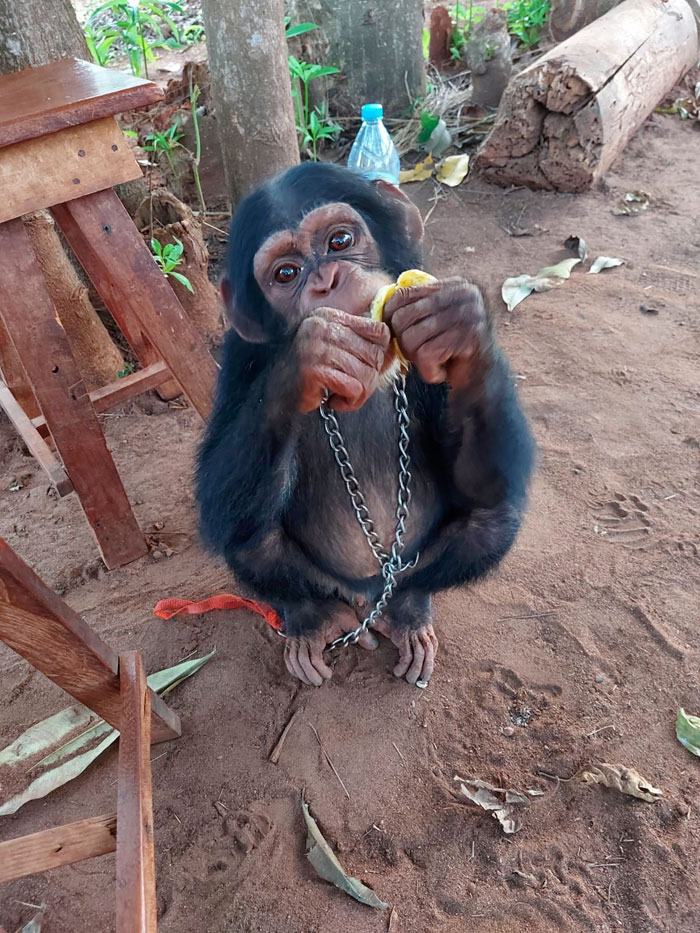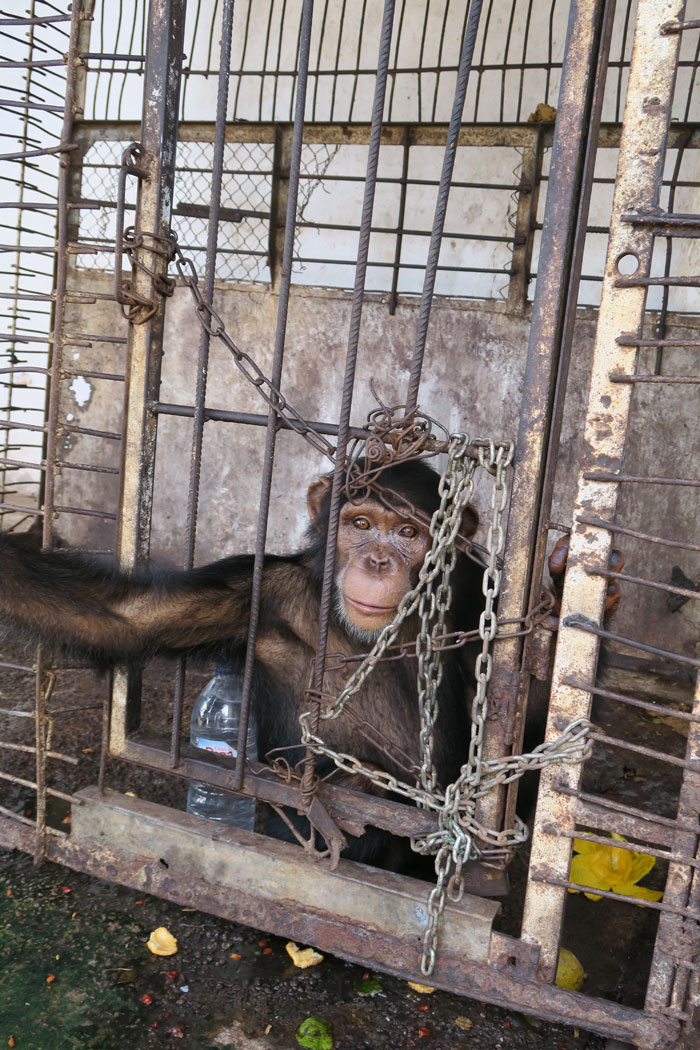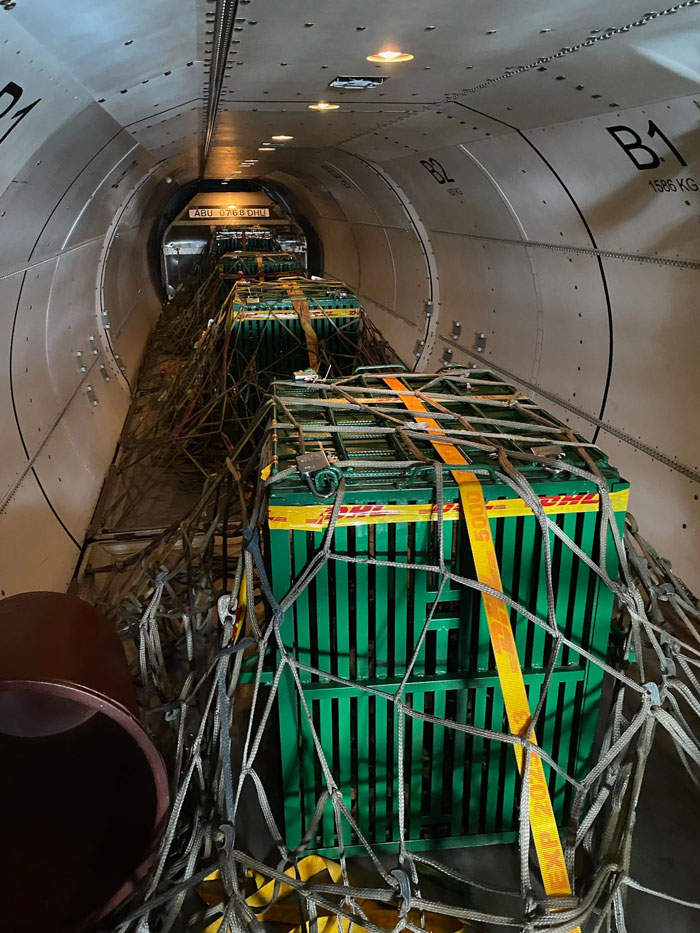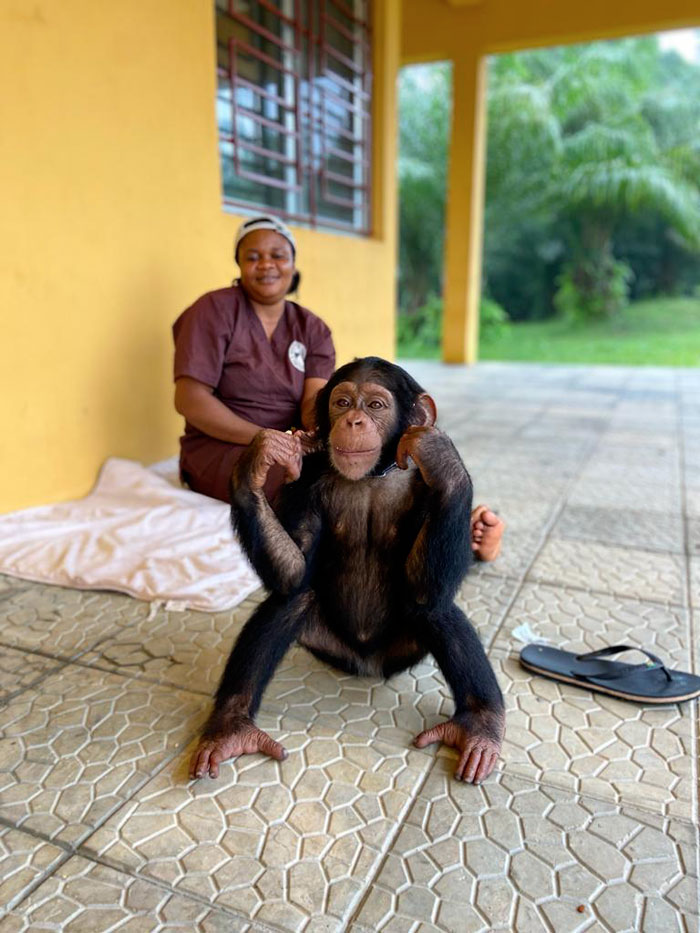Fighting chimpanzee trafficking in Africa
Since 2019, the Pan African Sanctuary Alliance has been trying to bring to safety several chimpanzees held as pets in inhumane conditions in Guinea-Bissau.
This has now been accomplished since Fifi, Tita, Tzé and Simao were successfully transferred to Liberia on July 9, 2022 where they are now being rehabilitated at Liberia Chimpanzee Rescue & Protection (LCRP) as there’s no rehabilitation center for primates in Guinea-Bissau.

Young male chimpanzee kept in Guinea-Bissau
© PASA
Female chimpanzee kept in Guinea-Bissau
© PASA
The veterinarian Rebeca Atencia, who’s also the Director of the Tchimpounga Sanctuary in Congo, went to Guinea-Bissau at the end of 2021 to assess the chimpanzees’ health and prepare their transfer to Liberia. Several months were necessary to finalize this large-scale operation, in particular to raise funds for building the airline-approved crates and obtain the CITES permits allowing the animals to be transferred from one country to another.
Even if there is still a long way to go before their final rehabilitation and introduction into a family group, Fifi, Tita, Tzé and Simao are now housed in a new sanctuary home where they can live with other chimpanzees, heal and form social bonds that are essential for their well-being.

© DHL/Liberia Chimpanzee Rescue & Protection

© Liberia Chimpanzee Rescue & Protection
The Zoo de La Palmyre provided financial support for this operation which was made possible thanks to the intervention of the General Directorate of Forests and Wildlife (DGFF) and the Institute of Biodiversity and Protected Areas (IBAP) of Guinea-Bissau, the Liberia Forestry Development Authority, DHL Africa, PASA, the Jane Goodall Institute and the LCRP.
Unfortunately, chimpanzee trafficking in Africa now is at a record high, as is the number of individuals taken in by African sanctuaries. While the adults are slaughtered for their meat, the baby chimps are sold in markets as pets. Some are shipped to China or the Middle East, others are bought locally by individuals who keep them isolated in cages or chained to trees. It is estimated that around 3,000 African great apes are trafficked each year.